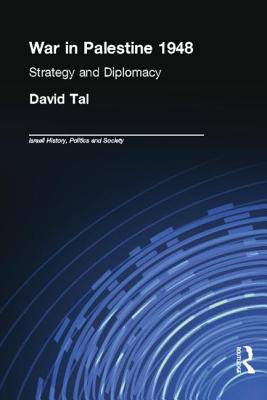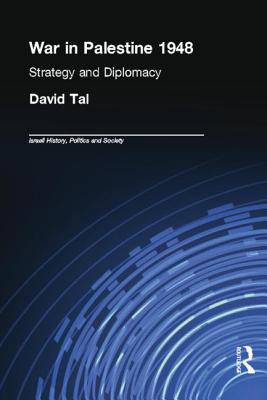
- Afhalen na 1 uur in een winkel met voorraad
- Gratis thuislevering in België vanaf € 30
- Ruim aanbod met 7 miljoen producten
- Afhalen na 1 uur in een winkel met voorraad
- Gratis thuislevering in België vanaf € 30
- Ruim aanbod met 7 miljoen producten
Zoeken
€ 75,95
+ 151 punten
Uitvoering
Omschrijving
Arab involvement in the Jewish-Palestine conflict had started during the late 1930s, but it was only in the wake of the UN Partition Resolution of 29 November 1947 that active military intervention was considered. The Arab League tried to form a unified army that would prevent the implementation of the Partition Resolution, but failed. In Egypt, the government and the army opposed the idea of dispatching an expeditionary force to Palestine, but the pressure of public opinion and King Farouq's insistence carried the day. The order was given and in May 1948, Egyptian forces crossed the international border with Palestine. The author analyses the reasons for the decisive victory enjoyed by Israel over a larger opponent; and the successes and failures that were sealed in the Egyptian-Israeli General Armistice Agreement signed in Rhodes in March 1948.
Specificaties
Betrokkenen
- Auteur(s):
- Uitgeverij:
Inhoud
- Aantal bladzijden:
- 512
- Taal:
- Engels
- Reeks:
Eigenschappen
- Productcode (EAN):
- 9780415761376
- Verschijningsdatum:
- 28/04/2014
- Uitvoering:
- Paperback
- Formaat:
- Trade paperback (VS)
- Afmetingen:
- 156 mm x 233 mm
- Gewicht:
- 702 g

Alleen bij Standaard Boekhandel
+ 151 punten op je klantenkaart van Standaard Boekhandel
Beoordelingen
We publiceren alleen reviews die voldoen aan de voorwaarden voor reviews. Bekijk onze voorwaarden voor reviews.











